Dubai-based designer, Khalid Shafar, is leading the way in forging a contemporary design identity for the UAE.
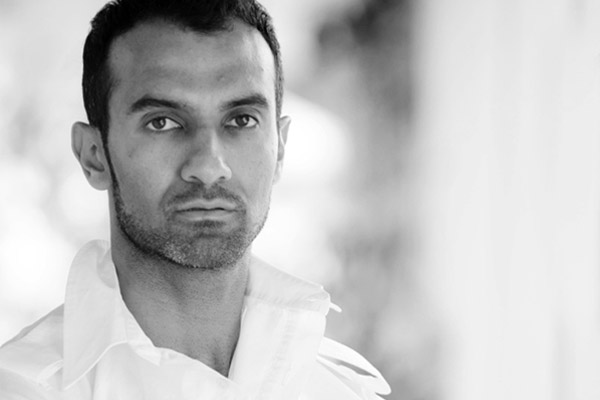
April 22nd, 2014
In a city better known for constructing man-made islands and indoor snowfields than for its cultural innovations, a new generation of creative talent is embracing industrial design as a profession. And, Khalid Shafar is, without doubt, the face of this new generation.
Until recently, 34-year-old Shafar was the only designer in the UAE to treat industrial design as a profession rather than a hobby. Others, however, have followed his lead. Today, his passion lies not only in pioneering a new local design aesthetic, but also in educating emerging designers on turning design into a full-time career. “The topic of design entrepreneurship is a hot topic,” he says. “I think it is important to give examples to emerging talents of how you can take design from a passion to a career. I was the first in the UAE to make design a career.”
It wasn’t always this way, however. Although Shafar trained as an interior designer, he didn’t feel design was a viable career in Dubai. So, until 2010, he worked in marketing and communications for an investment group. When the bubble burst in Dubai, Shafar followed his design dreams and enrolled in a furniture design course in New Zealand. “Until recently, there weren’t any industrial design courses in the whole Arab world,” he says. “I wanted to focus on furniture. [The course] allowed me to understand the making process – I want to produce things that are functional, not just conceptual.”
In 2012, just prior to the first edition of Design Days Dubai, Shafar returned to Dubai to open a studio, workshop and gallery (named KASA) in the Ras Al Khor industrial area.
From ‘The Palm’ series and ‘Fallen Palm’ bench of his first collection to his most recent ‘Decohaus’ collection, Shafar’s work represents an emerging contemporary identity for design in the Middle East. Local materials and crafted details root each piece firmly in its context, and the forms make subtle reference to location. Yet, far from re-hashing the traditions of the UAE, Shafar’s work offers a genuinely new interpretation.
“I was brought back by the sense of movement here,” he says. “I am a local designer, and I don’t want to see the design fairs here filled with only international work. The general level of our local design is not yet mature – that is quickly changing, but it needs strong voices to talk about it and show work.”
Mandi Keighran is Editor-at-large for Indesign, based in London.
Khalid Shafar
khalidshafar.com
INDESIGN is on instagram
Follow @indesignlive
A searchable and comprehensive guide for specifying leading products and their suppliers
Keep up to date with the latest and greatest from our industry BFF's!
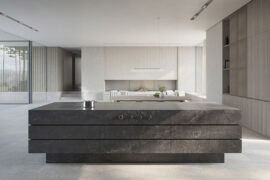
For those who appreciate form as much as function, Gaggenau’s latest induction innovation delivers sculpted precision and effortless flexibility, disappearing seamlessly into the surface when not in use.
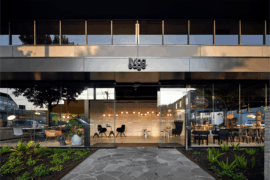
For Aidan Mawhinney, the secret ingredient to Living Edge’s success “comes down to people, product and place.” As the brand celebrates a significant 25-year milestone, it’s that commitment to authentic, sustainable design – and the people behind it all – that continues to anchor its legacy.

A new Tokyo museum dedicated to the work of Katsushika Hokusai explores how to bring a soft touch to strict geometry.
Offering limitless possibilities, Kase is an adaptable group or individual storage system that can be incorporated into interior environments as a credenza, bookshelf or file system.
The internet never sleeps! Here's the stuff you might have missed
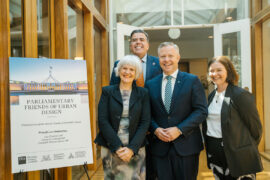
The Parliamentary Friends reconvened at Parliament House, uniting political and professional leaders to champion architecture and design.

Good looks count, but function completes the space.
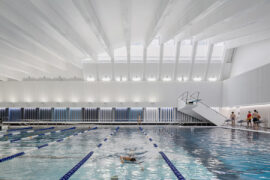
Hiwa, the University of Auckland’s six-storey recreation centre by Warren and Mahoney with MJMA Toronto and Haumi, has taken out Sport Architecture at the 2025 World Architecture Festival. A vertical village for wellbeing and connection, the project continues its run of global accolades as a new benchmark for campus life and student experience.
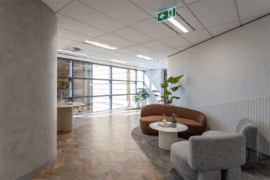
A thoughtful, low-waste redesign by PMG Group in collaboration with Goodman has transformed a dated office into a calm, contemporary workspace featuring a coastal-inspired palette and Milliken flooring for a refined finish.